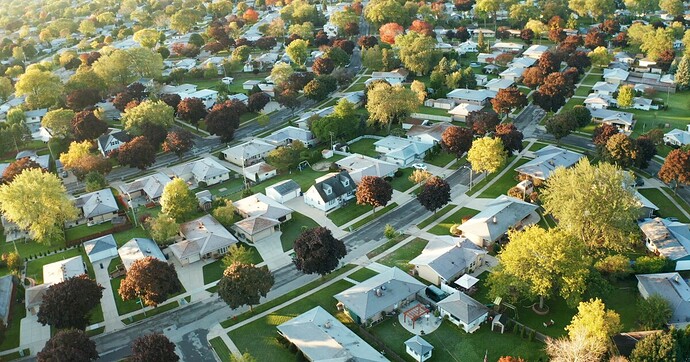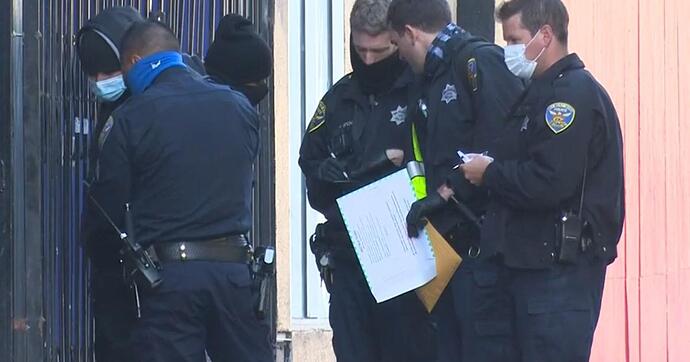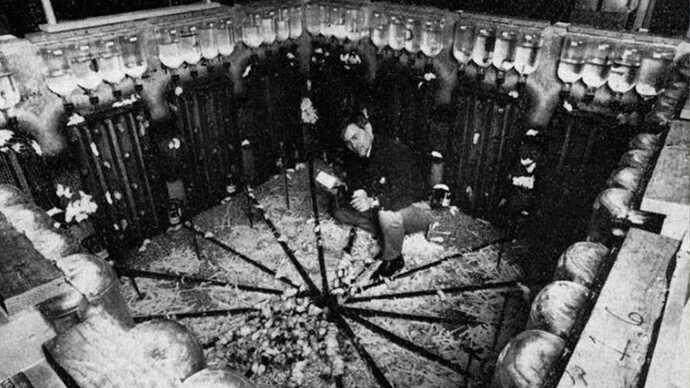Why?

Two major real estate search engines nix crime data in racial equity push
Realtor.com has removed crime data from its website, and Redfin has decided not to add it out of concerns that it could perpetuate racial inequity.
Why?
Maybe his other nine fingers are occupied. ![]()
Twitter lawsuit over banning for covid related “misinformation” (a fair bit of which turned out to be true).
Let’s be sorta’ fair … or at least somewhat realistic - "Don’t take the law into your own hands - unless you can’t find a sleazeball, or ethical, lawyer to take 'em to court.
Will this go any farther than all the other lawsuits that die at first contact with the legal system because they have no case and don’t want to commit perjury?
this is BS. As an example, this one went to court and Facebook admitted their "fact checks"are just opinions.
more on the so-called Facebook fact checkers.
Open letter from The BMJ to Mark Zuckerberg
Dear Mark Zuckerberg,
We are Fiona Godlee and Kamran Abbasi, editors of The BMJ, one of the world’s oldest and most influential general medical journals. We are writing to raise serious concerns about the “fact checking” being undertaken by third party providers on behalf of Facebook/Meta.
In September, a former employee of Ventavia, a contract research company helping carry out the main Pfizer covid-19 vaccine trial, began providing The BMJ with dozens of internal company documents, photos, audio recordings, and emails. These materials revealed a host of poor clinical trial research practices occurring at Ventavia that could impact data integrity and patient safety. We also discovered that, despite receiving a direct complaint about these problems over a year ago, the FDA did not inspect Ventavia’s trial sites.
The BMJ commissioned an investigative reporter to write up the story for our journal. The article was published on 2 November, following legal review, external peer review and subject to The BMJ’s usual high level editorial oversight and review.[1]
But from November 10, readers began reporting a variety of problems when trying to share our article. Some reported being unable to share it. Many others reported having their posts flagged with a warning about “Missing context … Independent fact-checkers say this information could mislead people.” Those trying to post the article were informed by Facebook that people who repeatedly share “false information” might have their posts moved lower in Facebook’s News Feed. Group administrators where the article was shared received messages from Facebook informing them that such posts were “partly false.”
Readers were directed to a “fact check” performed by a Facebook contractor named Lead Stories.[2]
We find the “fact check” performed by Lead Stories to be inaccurate, incompetent and irresponsible.
— It fails to provide any assertions of fact that The BMJ article got wrong
— It has a nonsensical title: “Fact Check: The British Medical Journal Did NOT Reveal Disqualifying And Ignored Reports Of Flaws In Pfizer COVID-19 Vaccine Trials”
— The first paragraph inaccurately labels The BMJ a “news blog”
— It contains a screenshot of our article with a stamp over it stating “Flaws Reviewed,” despite the Lead Stories article not identifying anything false or untrue in The BMJ article
— It published the story on its website under a URL that contains the phrase “hoax-alert”
We have contacted Lead Stories, but they refuse to change anything about their article or actions that have led to Facebook flagging our article.
We have also contacted Facebook directly, requesting immediate removal of the “fact checking” label and any link to the Lead Stories article, thereby allowing our readers to freely share the article on your platform.
There is also a wider concern that we wish to raise. We are aware that The BMJ is not the only high quality information provider to have been affected by the incompetence of Meta’s fact checking regime. To give one other example, we would highlight the treatment by Instagram (also owned by Meta) of Cochrane, the international provider of high quality systematic reviews of the medical evidence.[3] Rather than investing a proportion of Meta’s substantial profits to help ensure the accuracy of medical information shared through social media, you have apparently delegated responsibility to people incompetent in carrying out this crucial task. Fact checking has been a staple of good journalism for decades. What has happened in this instance should be of concern to anyone who values and relies on sources such as The BMJ.
We hope you will act swiftly: specifically to correct the error relating to The BMJ’s article and to review the processes that led to the error; and generally to reconsider your investment in and approach to fact checking overall.
Best wishes,
Fiona Godlee, editor in chief
Kamran Abbasi, incoming editor in chief
The BMJ
Competing interests:
As current and incoming editors in chief, we are responsible for everything The BMJ contains.
References:
[1] Thacker PD. Covid-19: Researcher blows the whistle on data integrity issues in Pfizer’s vaccine trial. BMJ. 2021 Nov 2;375:n2635. doi: 10.1136/bmj.n2635. PMID: 34728500. https://www.bmj.com/content/375/bmj.n2635
[2] Miller D. Fact Check: The British Medical Journal Did NOT Reveal Disqualifying And Ignored Reports Of Flaws In Pfizer COVID-19 Vaccine Trials. Nov 10, 2021. https://leadstories.com/hoax-alert/2021/11/fact-check-british-medical-jo…
[3] https://twitter.com/cochranecollab/status/1458439812357185536
And the ones that do die, die because certain courts gave the defendant an “out” that prevented them from having to try to fabricate some sort of plausable defense. “Not wanting to commit perjury” is involved, but not on the part of the plaintiff.
More and more, it’s been decided that the best way to win a debate on issues is to merely silence the opposing view. That isnt winning crap.

Realtor.com has removed crime data from its website, and Redfin has decided not to add it out of concerns that it could perpetuate racial inequity.
I found a great website that gives very detailed crime information. I looked up my neighborhood and found some pretty major crime areas not very far! it is well worth checking into before buying a house.
Edit. A problem is that crime statistics are skewed by the policies of Marxist district attorneys like Frisco DA, Chesa Boudin. since no one is prosecuted, people do not bother to report crime
“Frisco”. Kind of annoying. 
I found a great website that gives very detailed crime information. I looked up my neighborhood and found some pretty major crime areas not very far! it is well worth checking into before buying a house.
I looked up my location on that map and I am not impressed. I have previously looked at a (now inoperative) website that showed actual crimes over a window of time and it gave a very different picture.
This map simply shows crime rates for areas at a too-coarse level. From the map of actual crime around here I know most of the crime occurs on the main streets–but this map doesn’t even have the possibility of this–our house shows as the same crime rate as the main streets nearby.
Furthermore, the data isn’t good. I’m looking at a big swath of green on the map–most of that area is wilderness! And it’s not low-crime, either–you better not leave anything of value in your car when you park out there or you’re likely to find someone has broken in while you were out.
Also, I’m looking north of town. One side of the road is green, the other side is red. Really?? It’s probably a statistical artifact as there are few houses south of the road. The red zone is wrapped around the green zone–while there are houses in parts of the red zone most of it is also wilderness, but farther from down and less subject to trailhead breakins. Going farther I notice a little bite of C territory out of the big red blob–out there that little bite is the only habitation in the area!
Following the road still further I find a huge swath of red. I find the idea that the area has a high crime rate ludicrous as it’s a pretty classified zone. Searching farther afield I find numerous red areas that have almost nobody living there and in town I find plenty of places where there are shifts of two or more places between adjoining areas.
I have previously looked at a (now inoperative) website that showed actual crimes over a window of time and it gave a very different picture.
That does sound better. If you run across a similar website that is still in operation let us know.
Frisco”. Kind of annoying.
Sorry. I use that to annoy the locals and I guess it works. ![]()
Speaking of crime, things are getting pretty serious there. After a 10 hour session the Board of Supes actually approved the mayor’s emergency decree.

After hours of at times contentious debate, the San Francisco Board of Supervisors voted overwhelmingly early Friday to approve Mayor London Breed's proposed state of emergency for the city's crime and drug-ridden Tenderloin District.
I looked up my location on that map and I am not impressed. I have previously looked at a (now inoperative) website that showed actual crimes over a window of time and it gave a very different picture.
This map simply shows crime rates for areas at a too-coarse level
If your area includes lots of wilderness, few houses on one side of roads, main roads, trailhead break-ins, and “the only inhabitants in the area” areas, the data is bound to be pretty coarse.
I found a great website that gives very detailed crime information.
Grades of A and A+ here where I live. Not many people so, I guess, not a lot of crime. I have not seen a police car on my road for at least ten years or more. And in this general area I think my last sighting was back in the last century.
Wait that’s wrong. I did call the police myself back in 2001 when one of my front windows was obliterated. I was extremely surprised and very upset. There was broken glass everywhere; what a mess! The officer arrived, came in and looked around, and left to write his report.
I had to call the police back later after finally discovering the bird feathers. It must have been a HUGE bird flying at high speed to do that kind of damage.
Actually I’m thinking maybe it’s a pretty decent area that most of us reside. I checked my location.
The main country road which my address is has few homes on one side of the road and it’s listed dark green. My side of the road is farming with very few homes. It’s listed lightly green. So I’m happy for the possibilities of little crime.
But nevertheless I have fenced area around my house and double gates on entrance to the yard. Most of the time during the day I don’t keep my doors locked. I’m definitely securely locked at night.
What can we say, it’s not terribly safe in our country as it was many years ago. Even though we have light police protection I believe that we shouldn’t be too carefree. 
Most of the time during the day I don’t keep my doors locked. I’m definitely securely locked at night.
Perhaps the old timers can remember a time in most parts of America when people didn’t routinely lock their doors at all. But that’s going on 100 years ago almost and there were probably 1/4 as many people in the same area. Sure, people aren’t mice, but they don’t react well to overcrowding either.

Image Credit: Public Domain (via Smithsonian Magazine) Between 1968 and 1970, American ethologist John B. Calhoun (1917-1995) conducted a behavioral study of captive mice within a nine-square-foot enclosure at a rural facility
If your area includes lots of wilderness, few houses on one side of roads, main roads, trailhead break-ins, and “the only inhabitants in the area” areas, the data is bound to be pretty coarse.
I was complaining about coarseness in the suburban areas. The sparse areas I was simply saying are bad data. There are A+ rated areas where vehicle break-ins are a substantial issue, there are F rated areas where I don’t have the slightest qualm about going alone at night.
There are A+ rated areas where vehicle break-ins are a substantial issue, there are F rated areas where I don’t have the slightest qualm about going alone at night.
Wait - so you are trusting your own opinions over the data? Sounds like something you’ve been pretty critical of others doing regarding other subjects.
Not just my opinion, that’s the consensus of many of us who engage in wilderness recreation. Trailheads near town have substantial vehicle break-in problems. The distant locations don’t have enough traffic for the scumbags to go to.